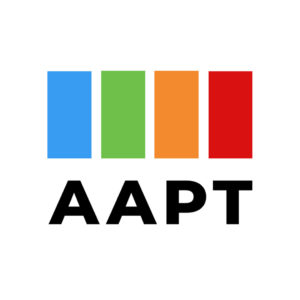v.5 online first: four more
We are excited to announce the availability of four more essays from volume 5 in the online first format:
Russell Marcus
Scaffolding for Fine Philosophical Skills
Philosophy students often struggle to master the complex skills needed to succeed in their work, especially in writing thesis-driven essays. Research over the past forty years on instructional scaffolding, both generally and as applied in philosophy, has helped teachers to refine both instruction and assignment design to improve students’ performance on complex philosophical tasks. This essay reviews the fundamentals of scaffolding in order to motivate and support some innovative in-class exercises and writing assignments that can help students develop even finer-grained skills. These skills are useful both intrinsically and for their transfer to longer-form essays, to other philosophical work, and to the general academic and intellectual development of our students.
Robert Loftis
Beyond Information Recall – Sophisticated Multiple-Choice Questions in Philosophy
Multiple-choice questions have an undeserved reputation for only being able to test student recall of basic facts. In fact, well-crafted mechanically gradable questions can measure very sophisticated cognitive skills, including those engaged at the highest level of Benjamin Bloom’s taxonomy of outcomes. In this article, I argue that multiple-choice questions should be a part of the diversified assessment portfolio for most philosophy courses. I present three arguments broadly related to fairness. First, multiple-choice questions allow one to consolidate subjective decision making in a way that makes it easier to manage. Second, multiple-choice questions contribute to the diversity of an evaluation portfolio by balancing out problems with writing-based assessments. Third, by increasing the diversity of evaluations, multiple-choice questions increase the inclusiveness of the course. In the course of this argument I provide examples of multiple-choice questions that measure sophisticated learning and advice for how to write good multiple-choice questions.
Julie Walsh; Sara M. Fulmer; Sarah Pociask
Cross-Year Peer Mentorship in Introductory Philosophy Classes – The Home Base Mentoring Program
Philosophical writing is challenging for students new to philosophy. Many philosophy classes are populated, for the most part, by students who have never taken philosophy before. While many institutions offer general writing support services, these services tend to be most beneficial for helping to identify problems with style and grammar. They are not equipped to help students with the particular challenges that come with writing philosophy for the first time. We implemented the Home Base Mentoring Program in two introductory-level philosophy courses to target the specific challenges that novice learners have when learning how to write philosophy. Through the program, students had access to writing mentors who were undergraduate senior philosophy majors. Based on surveys given to the students who have participated in this program, we found that the program boosted student confidence in writing and also worked to develop a welcoming, judgment-free, and encouraging environment in the philosophy department more generally.
Mara Harrell
Developing Engineering Students’ Moral Reasoning Skills Using Problem-Based Learning
Problem-Based Learning has become an increasingly popular instructional method for a variety of disciplines at all levels. Many studies and meta-analyses of these studies have shown the efficacy of this method for developing knowledge and skills. I adopted this method for teaching Engineering Ethics at Carnegie Mellon University, which has as its main course objectives the development of moral reasoning skills, as well as collaboration and communication skills, with special attention given to ethical dilemmas that may arise in the normal course of an engineer’s professional career. In the most recent iteration of the course, I used the Engineering and Science Issues Test as a pretest and posttest to test the development of my students’ moral reasoning skills over the course of the semester. Based on the results of these tests, I argue that the students in my Engineering Ethics course did in fact significantly develop their moral reasoning skills.
Check them out by clicking their titles above or going to https://www.pdcnet.org/aaptstudies/onlinefirst
The final version of the completed volume will be available soon.
